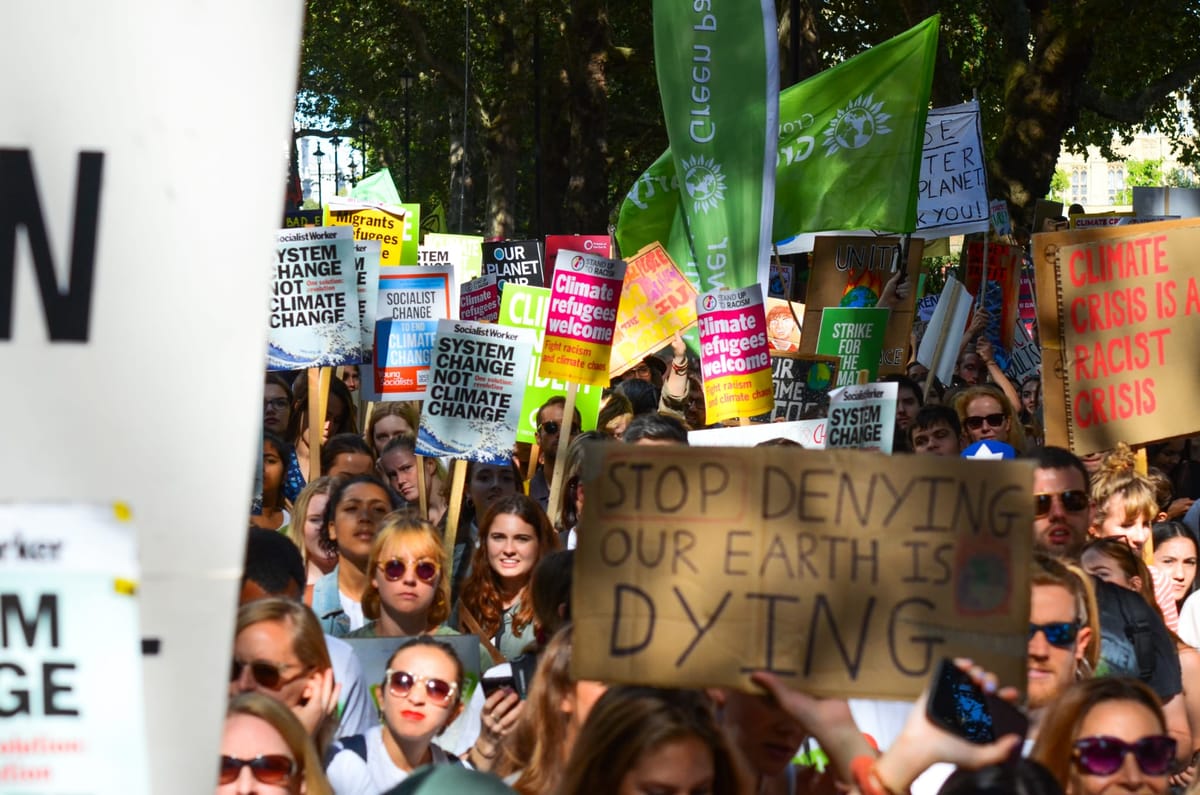White Voices in Green Movements

By Clarissa Mondeh, Anthropology and World Philosophies
Environmental movements live in a continuous contradiction. Those most affected by climate change in the world are People of Colour (POCs). Yet, almost all of the green movements that have gained traction in recent years are predominantly white. This lack of representation intensifies sentiments regarding the nature of decision making in green politics and movements whereby solutions are being done ‘to’ people rather than ‘by’ people.
The common rhetoric of changing to a sustainable diet is a prime example of this, whereby an unrealistic onus is put on individual action whilst neglecting deeper issues such as the redistribution of land ownership. Yet, the issue should also not be seen solely as a lack of representation.
It is ultimately concerned with outward appearance, allowing the impression that POCs are being ‘heard’. That being said, are we being listened to? The solutions propounded by green movements fail to convince us of this. As exemplified above, there appears to be a lack of focus on the systemic nature of the problem, that would ultimately expose the intersections between environmental degradation, race, and class.
Green movements seemingly lack awareness of the interconnectedness between various social issues and the environment. This leads to the ostracization of POCs; by caring about the environment, we realise that a story of climate change which omits a deep recognition of the history of colonialism is only a story half told.
It is for this reason that groups such as LION – Land In Our Names, a London based initiative – attempt to heal both the earth from past and ongoing damage caused by colonial extractive practices as well as the individual trauma faced by POCs due to land dispossession. This two-fold scarring endured both by persons and the environment echoes through the hollowness of common rhetoric within climate movements surrounding our ‘future generations.’ Ultimately, there will be no safe future until the past has been healed.
The mobilisation of alternative spaces of resistance that centre POC voices makes me question whether participation in mainstream green politics and movements is even desirable? When one’s own history is nowhere to be found within a movement, it is also hard to find oneself within that group. A shift in focus is required.
Until the green movement acknowledges that history takes on a mirage of colours relentlessly seeping into today, it will remain a space of whiteness.
Instead of seeing the climate crises’ time frame as the present and future, we must realise that the environmental damage evidenced today is part of a larger history. This is related to colonialism and subjugation. Until the green movement acknowledges that history takes on a mirage of colours relentlessly seeping into today, it will remain a space of whiteness.
In Britain, the form of resistance used by Extinction Rebellion (XR) remains exclusive to predominantly white participants. This is because of the continual threat of racist institutions such as the police, serving as an unsettling reminder of the privilege that the justice system affords to white individuals. The disruptive tactics are given as a reason, both by white and POC activists, for the one sided representation within environmental groups.
Nonetheless, we should not end the story here. A paradox arises when one realises that the ‘radical’ actions employed by XR find their origin within indigenous environmental movements such as the Indigenous Environmental Network. The methods of mobilisation used by XR are in fact inherited by POCs. The same methods are an alienation tool within a British context.
The main issue I see lies not in the usage of tactics that have been proven successful by other environmental activists, but rather the complete lack of acknowledgement of the ancestral and cultural legacy from which these practices originate. Fuel is added to a burning fire of ignorance when strategies employed by green movements – for example disrupting public transport – disproportionately target POCs and working class livelihoods.
The radicality of the action is questionable. With Britain as a backdrop, the arrests and railings against the government seem radical enough. Situate that in a global perspective and nothing changes; POCs remain at the bottom of a century old food chain. Green movements and politics make it clear that the environment affects us all. As of yet, any hope of connection to it and to a clearer future is still only the privilege of some.
Photo caption: Climate protesters in London (Credit: Gabriel Rahman)



